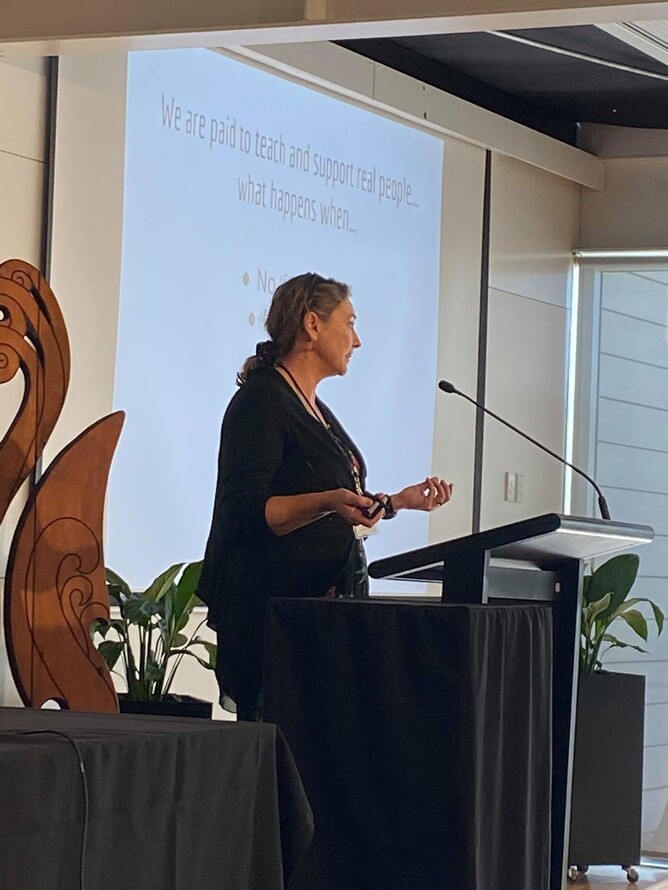Karen and Kate took a presentation at the recent NZSSD Conference describing a community perspective regarding the impact of Covid-19 on the ability to carry out routine health promotion activities.
The presentation discussed how the 'normal' situation where health promotion and working face-to-face with people has gone together, was severely impacted by Covid-19 restrictions. Lockdown and inability to access venues and groups and community members meant reduced or no capacity to carry out the tried and true method of face-to-face teaching and intervention to promote lifestyle and behaviour change, particularly in high risk groups. It also impacted relationships between organisations and collaborators.
The presentation described Diabetes Foundation Aotearoa and partner organisations experience with the advent of Covid-19 in 2020, the impact of lockdowns on staff and intended audiences, and changes to social and communication behaviour as having the effect of widening disparities "making vulnerable people more vulnerable, providing barriers to food sourcing, normal routines and provoking desire for stress-related comfort eating". Also addressed in the presentation were aspects of the available evidence on amplified Covid-19 risks associated with lifestyle related health conditions.
See the abstract attached for more detail.


